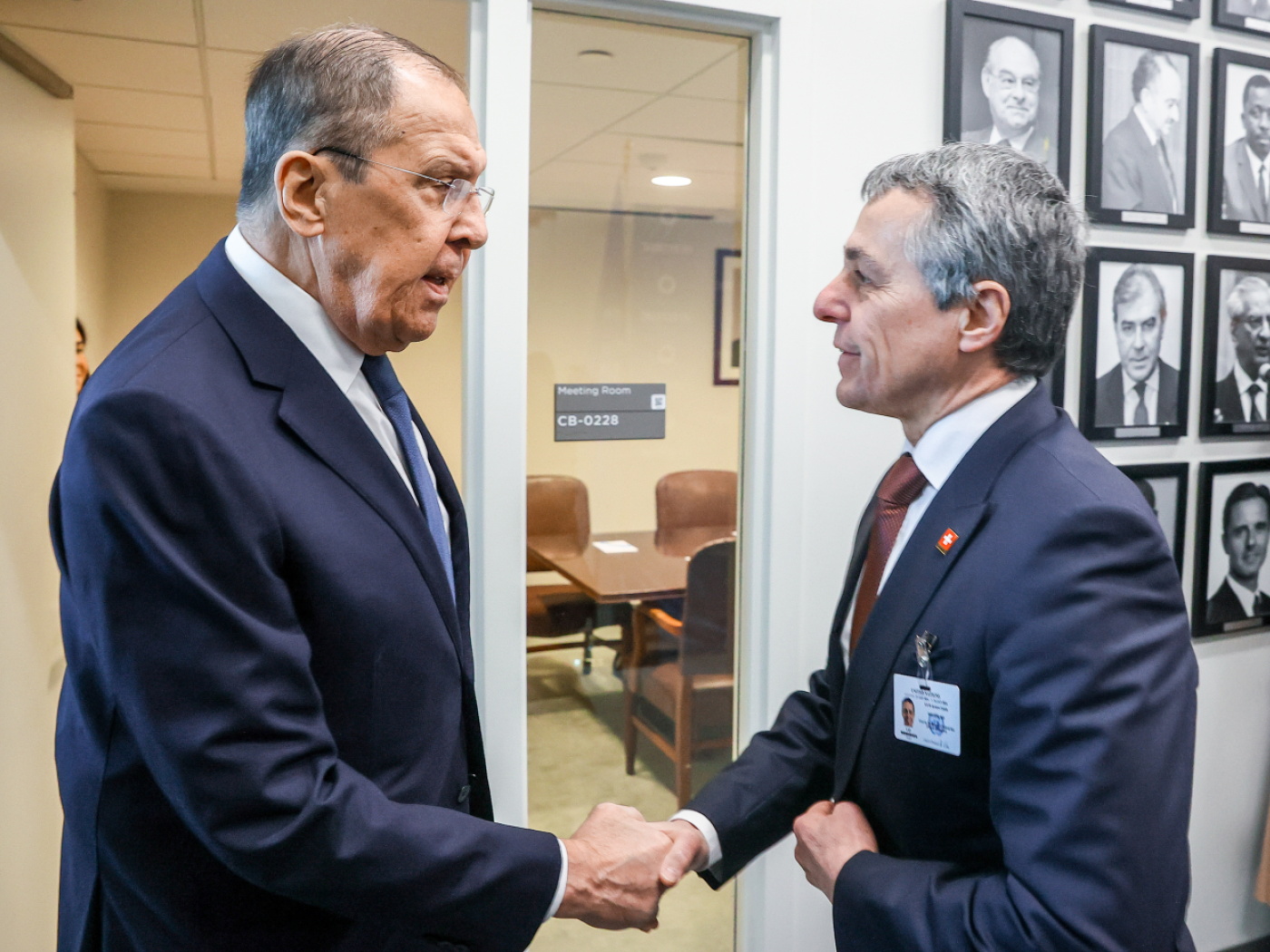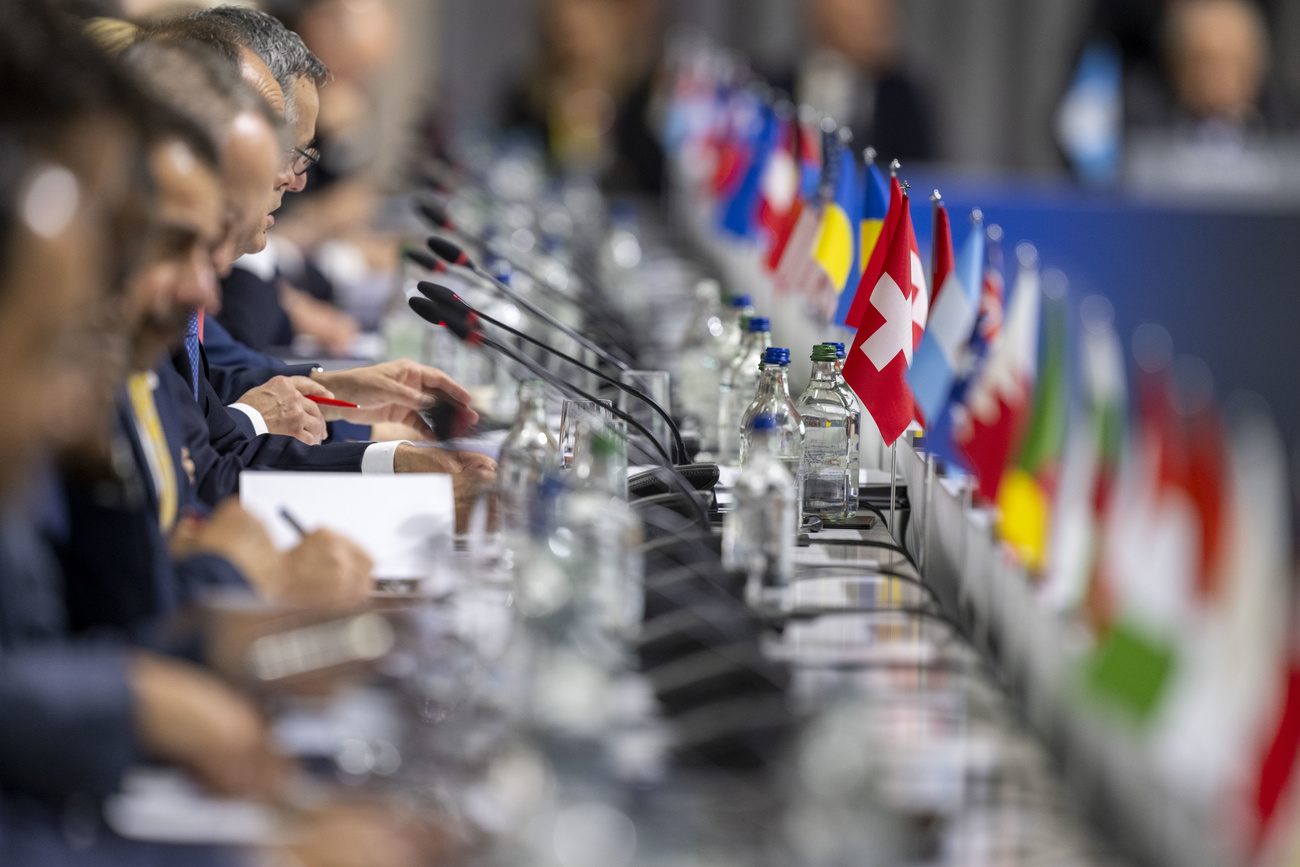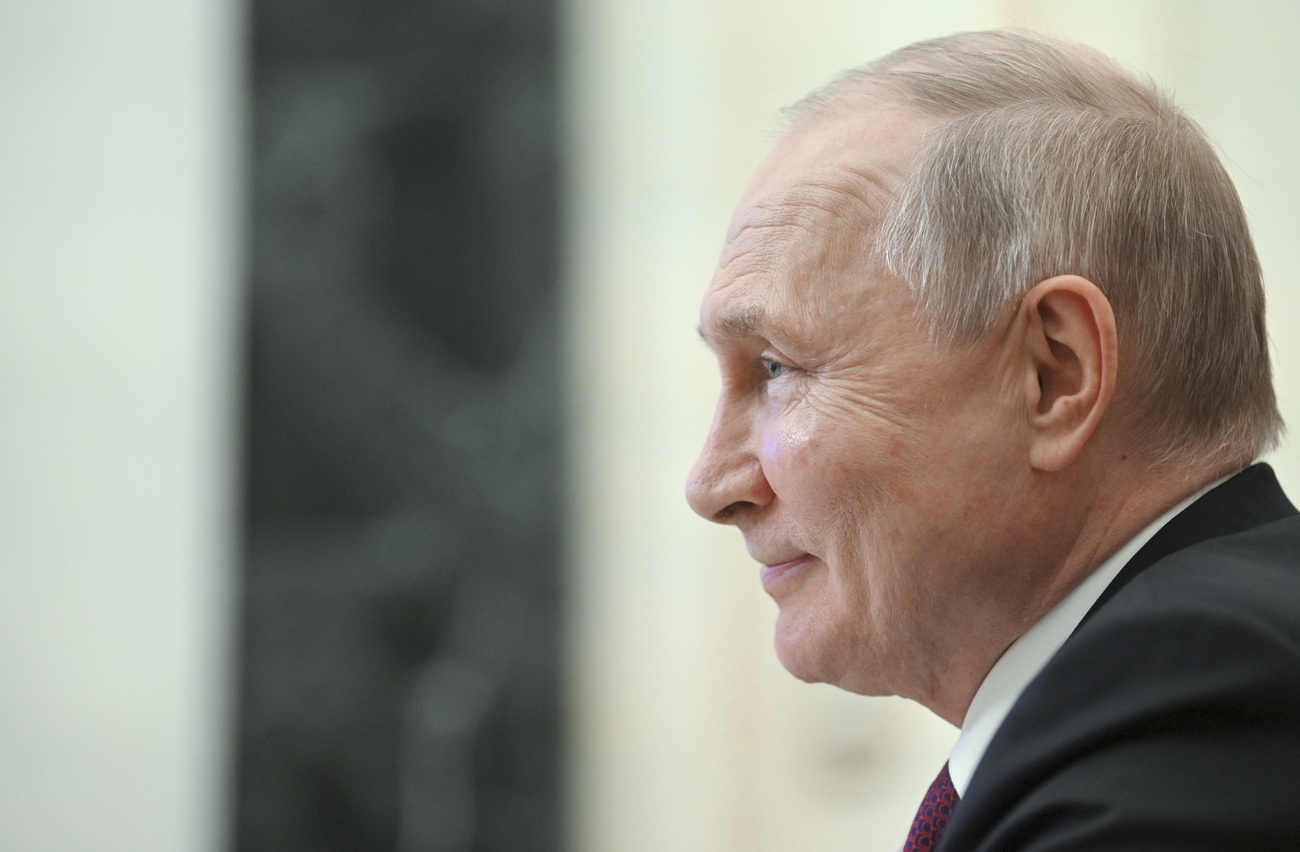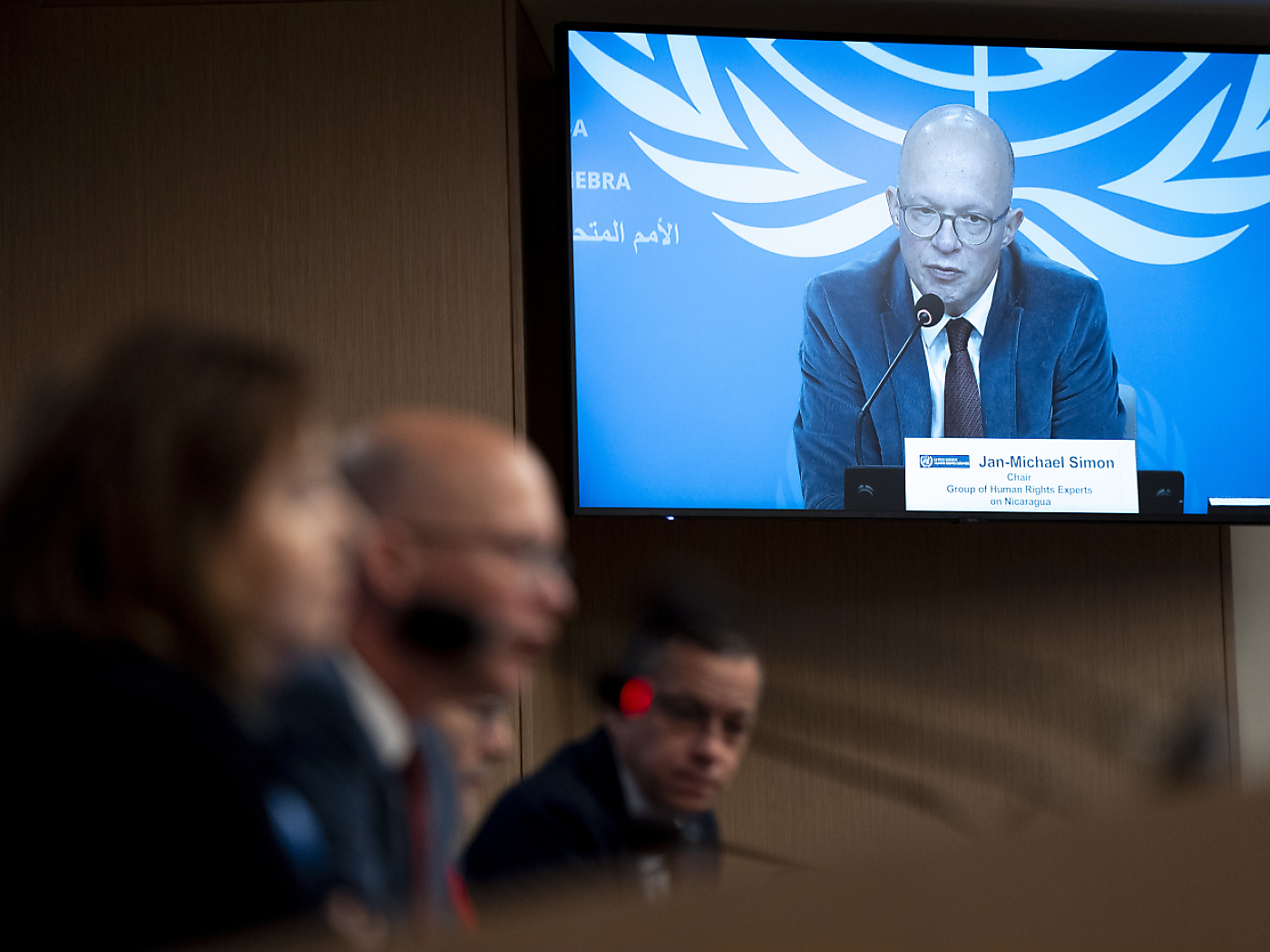Cassis and Lavrov discuss the OSCE and the Ukrainian conflict

Russian and Swiss foreign ministers Sergei Lavrov and Ignazio Cassis spoke on the telephone about Switzerland's bid to chair the OSCE in 2026, the Swiss foreign ministry reported on Thursday. According to Moscow, they also discussed the Ukrainian conflict.
The conversation between the two ministers took place on Wednesday, according to the Federal Department of Foreign Affairs (FDFA), confirmed news agency Keystone-SDA. It was a rare exchange between a high-ranking Russian and Western official since Russia’s invasion of Ukraine in 2022.
+Get the most important news from Switzerland in your inbox
Switzerland’s application to join the Organization for Security and Cooperation in Europe (OSCE) was announced on Thursday by the FDFA. Switzerland said it was committed to preserving the organisation’s ability to act and its inclusiveness.
Preventing further deterioration
According to Moscow, Cassis and Lavrov discussed “ways of preventing further deterioration” at the OSCE, whose meetings have become another battleground between Moscow and the West.
+ Heard something about Swiss diplomacy that you’d like us to fact check?
According to Russia, “the two sides also exchanged views on the Ukrainian conflict. The minister explained in detail the Russian position on resolving the situation.”

More
Ukraine peace summit failed to meet ‘fairytale’ expectations
Lavrov also re-emphasised “the inadmissibility of NATO’s eastward expansion, which is one of the root causes of the current situation”, according to his ministry. “In this context, Russia’s willingness to take all necessary measures to ensure its security was reaffirmed”, he added.
Sanctions
Relations between Russia and Switzerland have deteriorated sharply since the start of the Russian offensive in Ukraine in 2022. Switzerland adopted sanctions against Moscow and hosted two summits on Ukraine called by Ukrainian President Volodymyr Zelensky, but at which Russia was absent.

More
Debunking Russian propaganda on Switzerland
In early November, German Chancellor Olaf Scholz had his first telephone conversation in over two years with Russian President Vladimir Putin, provoking the ire of Ukraine.
Second Ukraine peace conference and Russia
Switzerland is working intensively to involve Russia in the next Ukraine peace conference. Foreign Minister Cassis said this on Monday in Rome on the fringes of a meeting.
“We are working intensively with many partners and have been trying to involve Russia since the first conference on the Bürgenstock,” said Cassis. He emphasised the need to open up dialogue between Ukraine and Russia.
According to Cassis, Switzerland is heavily involved in the organisation of the second Ukraine peace conference: “Work is continuing intensively (…) with Moscow, Washington, the G7 and the EU,” he said.
Signals from the United States and its new government “give us cause for cautious optimism”, Cassis added. The conditions for a solution that is more in line with international law may be in place, as the situation has become untenable for both sides, Cassis said. He hopes that the Ukrainian people will experience their last winter of suffering.
Russia’s absence from the first Ukraine peace conference at Bürgenstock in June caused a stir. Switzerland had not invited Russia at the time. No one from China attended either – despite an invitation.
Adapted from French by DeepL/ac
This news story has been written and carefully fact-checked by an external editorial team. At SWI swissinfo.ch we select the most relevant news for an international audience and use automatic translation tools such as DeepL to translate it into English. Providing you with automatically translated news gives us the time to write more in-depth articles.
If you want to know more about how we work, have a look here, if you want to learn more about how we use technology, click here, and if you have feedback on this news story please write to english@swissinfo.ch.

In compliance with the JTI standards
More: SWI swissinfo.ch certified by the Journalism Trust Initiative


















You can find an overview of ongoing debates with our journalists here . Please join us!
If you want to start a conversation about a topic raised in this article or want to report factual errors, email us at english@swissinfo.ch.